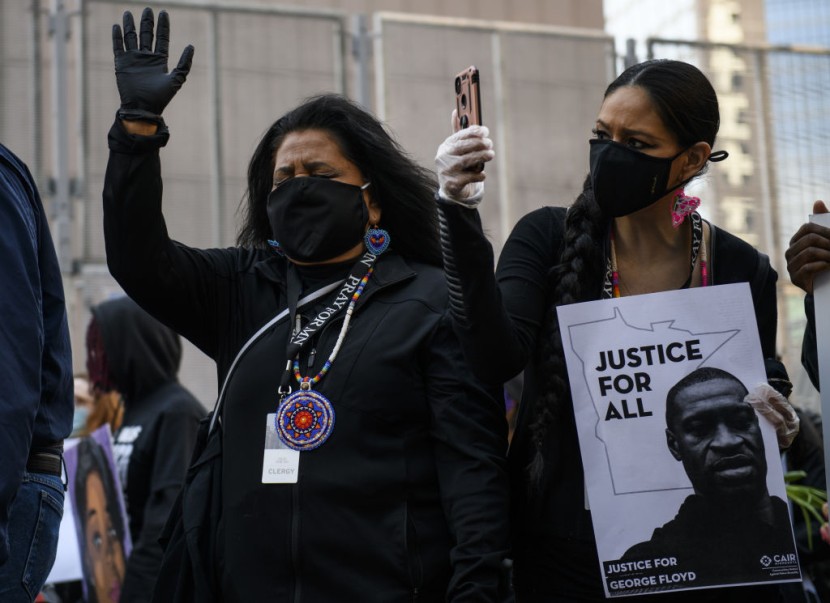
The Minneapolis Police Chief Medaria Arradondo said that Derek Chauvin went too far when he arrested George Floyd. Officer Chauvin did not follow department policy when conducting the arrest.
Last Monday, Chief Arradondo testified in court that Floyd's death was due to what happened during the arrest. The victim died allegedly due to the unwarranted actions of Chauvin while arresting the victim.
Derek Chauvin used the knee on Floyd
Police Chief Arradondo told the prosecutor on the fifth day of the Chauvin trial at Hannepin County that the arresting officer used his knee when keeping control of Floyd. He confirmed that using his knee was against department policy.
This is what happened during the court trial, as reported by the Epoch Times. He added that the officer while arresting the doomed Floyd, did not apply department rules on de-escalation.
Medaria Arradondo was quoted as saying these statements in court.
"That action is not de-escalation, and when we talk about the framework of our sanctity of life, and when we talk about the principles and values that we have, that action goes contrary to what we're taught."
Derek Chauvin is on trial for the killing of Floyd, charged with several crimes, including second-degree murder for the fatal arrest on May 25, 2020. It all began at a convenience store in Minneapolis after the store clerk reported a fake bill that Floyd used to pay for his purchase. The police answered and checked Floyd's car; inside was his alleged drug dealer cohort near him.
Black Americans Want Police Presence in Their Neighborhoods, Recent Poll Reveals
According to police officers at the scene, Floyd did not want to be arrested when Chauvin handled him. A knee was placed on the shoulders and neck while trying to restrain him. At the same time, two other officers held his lower body in place. The New York Times reported on the fatal arrest by the Minneapolis police.
Soon after Chauvin placed his knee on the man's neck, Floyd got choked. The medical examiner said it was a homicide caused by a heart attack brought by the law enforcer's subdual, restraint, and pressing on the neck.
In court on Monday, the officers should have stopped restraining the victim and give him aid. Instead of doing that, the police held on and made it worse.
Questioned by Chauvin's defense attorney, Arradondo stated that he had not arrested anyone for several years under oath. He explained that all officers were trained to use force when arresting a suspect, which depended on how the suspect reacts. Most of the time, force should not be the first option to use.
Attorney Eric Nelson, Chauvin's counsel, showed the video to Arradondo with dual footage captured during the controversial arrest. Nelson showed clips from the police body camera and an onlooker when it happened.
Nelson was quoted saying to the officer on the stand the following statements and Arradondo, answer yes.
"Would you agree that from the perspective of Ms. Frazier's camera, it appears officer Chauvin's knee is on the neck of Mr. Floyd?"
"Would you agree from the perspective of officer King's body camera, it appears that officer Derek Chauvin's knee was more on Mr. Floyd's shoulder blade?"
More testified on Monday and gave their opinions, but another trial will set on Tuesday as a continuation for more witnesses.
Democrats Allow Changes to Police Reform Bill After Looting and Rioting Protesters Stopped the Chaos
Democrat's Pandora's Box: Will They Agree with George Floyd Sympathizers to Defund Police?








